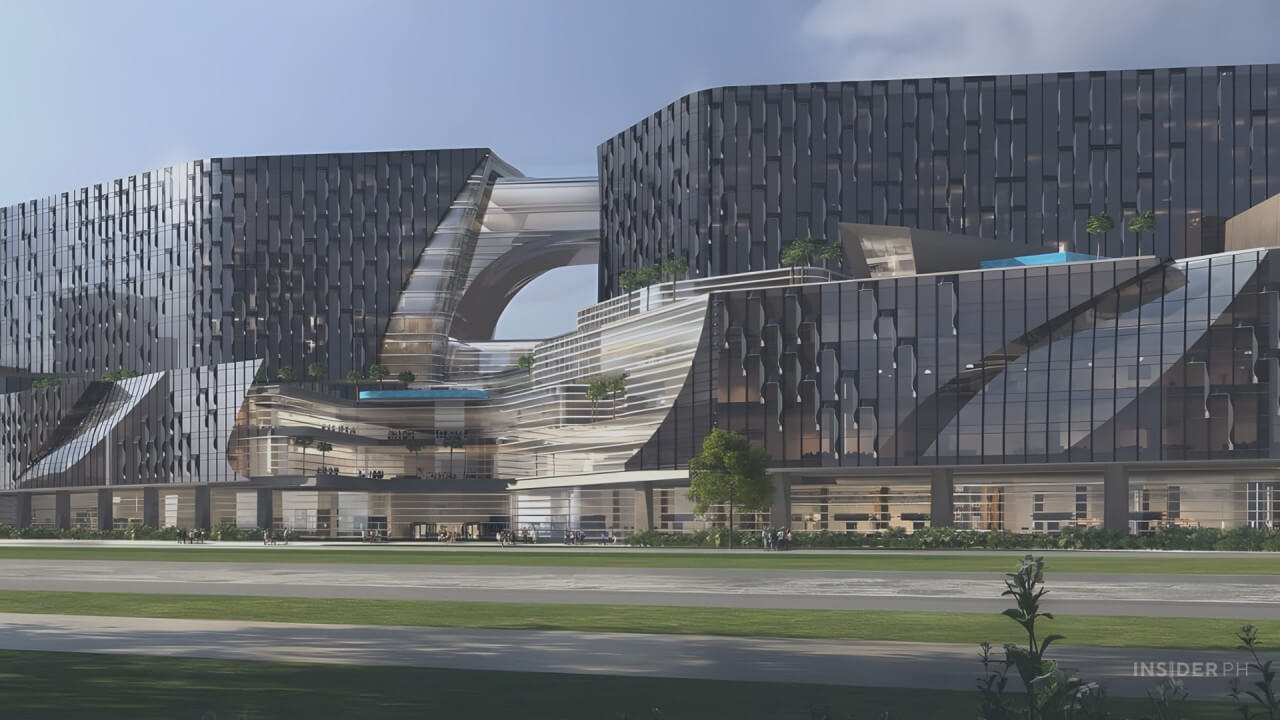

In a stock exchange filing on Monday, LET Group-owned Suntrust Resort Holdings said its board approved a strategic agreement with Tan-led Travellers International Hotel Group and affiliates to accelerate the opening of the Westside Integrated Resort Project.
The gaming resort, the fourth licensee in the Entertainment City complex along Manila Bay, was envisioned to open as early as 2022 but has faced repeated delays. The latest timetable sets the launch of the main hotel and casino for the third quarter of 2026.
What’s the deal about?
Suntrust sealed a “strategic working agreement” that restructures ownership of the gaming project with Travellers, Westside City Inc., Westside Bayshore Holding Corp., and Entertainment City Resorts Corp. (ECRC).
Based on the agreement, Suntrust will hold 20 percent of ECRC, which will be controlled by Travellers, according to an insider. Travellers, operator of Newport World Resorts, is also planning new integrated resorts in Mactan Cebu and Boracay Island.
“To ensure the timely construction, development, completion and operation of the Westside Integrated Resort Project, ECRC will assume all rights and obligations related to the project,” Suntrust said.
Big picture
Suntrust’s retreat reflects its own financial troubles and broader pressures in the land-based casino sector, where VIP demand has been softening.
However, it retains a minority stake in the much larger Westside development, which will include other components within the sprawling Manila Bay estate.
“The Westside Integrated Resort Project is a world-class integrated resort consisting of a five-star hotel, casino, mall, and theater comple,” Suntrust said in its filing.
“Among its offerings are Artists Promenade, the iconic Grand Opera House and the Apollo, Bohemia, and Crown theaters—all dedicated to Philippine performing arts,” it added.
The project will join three other integrated casino resorts in Entertainment City: tycoon Enrique Razon Jr.’s Solaire Resort Entertainment City, SM and Melco-backed City of Dreams Manila, and Okada Manila.
Management's view
“Westside City is more than a destination—it’s a commitment to Filipino talent and world-class entertainment," said Kevin Tan, the chair of Travellers International and president and CEO of AGI.
"Our vision is to create a global stage that celebrates local excellence, drives tourism, and redefines how the world experiences the Philippines," he added.
With Travellers at the helm, Tan will finish the casino and hotel, which will feature over 2,000 gaming tables and slot machines and nearly 2,600 hotel rooms across three hotels.
Its crown jewel is the Grand Opera House, which aims to position the Philippines as the “Broadway of Asia.”
Market expert’s view
Unicapital Securities gaming analyst Jeri Alfonso views Travellers’ takeover of the Westside City project as a bold bet amid a challenging casino landscape.
“The takeover shows Travellers’ confidence in the Westside project, though it’s worth highlighting that their flagship Newport World Resorts has already been facing softer momentum, with [gross gaming revenue] declining in [the first half of 2025],” she told InsiderPH.
She noted that Westside City was seen as a potential demand driver for integrated resorts, banking on "gambler’s psychology” to attract foot traffic and create spillover for nearby casinos.
“However, with the rapid growth and stickiness of online gaming, momentum now tilts toward digital platforms. We think Suntrust may struggle to get the kind of traffic it wants, since most of it seems to be heading online these days,” Alfonso said.
The Tans used to own Suntrust
In 2015, Tan’s group unveiled a P65-billion plan to build Westside City, a 31-hectare casino and leisure hub in Parañaque.
That changed in 2019 when they sold Suntrust to LET Group’s predecessor, Suncity Group Holdings, which was then led by gaming tycoon Alvin Chau before his arrest over gambling charges in Macau.
LET Group loan default, delisting in Hong Kong
LET Group reported a HK$34.3-million loss in the first half of 2025 despite higher revenue from its Russian gaming operations.
Losses stem from heavy borrowing costs, a defaulted HK$137.5-million loan, and ongoing spending to complete its delayed Manila integrated resort.
As of June, the company warned of a material uncertainty over its ability to continue as a going concern because its assets in listed subsidiaries are not readily available to settle debts.
LET Group’s delisting from the Hong Kong Stock Exchange is set for Sept. 1, 2025, with trading already suspended ahead of the removal.

Miguel R. Camus has been a reporter covering various domestic business topics since 2009.


